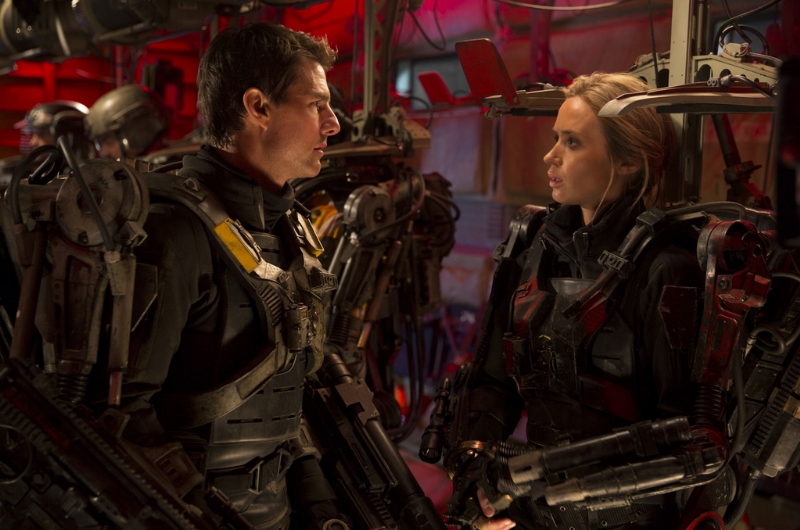Snowpiercer
by George Wolf
Those pinhead libs in Hollywood are at it again! This time, they’ve got something called Snowpiercer, and are trying to distract us with simmering tension, a smart script and terrific action, but the hidden agenda is clearly just another unwarranted attack on our job creators!
Actually, the agenda is far from hidden, in fact, it might as well be a deadly-aimed snowball right to the face of John Galt.
And damn, it’s well done.
Adapted from a 1982 French graphic novel, Snowpiercer drops us in the year 2031, 17 years after a desperate attempt to curb global warming instead resulted in a new ice age. What’s left of humanity travels the globe on a high speed train, where a very specific social order is enforced. Can you guess?
Makers in the luxurious front, takers in the squalid back.
But there’s a revolution brewing, reluctantly led by the cunning, pensive Curtis (Chris Evans, solid again) and his eager, impulsive sideman Edgar (Jamie Bell). After another degrading “know your place” speech by Minister Mason (Tilda Swinton, gloriously over-the-top), the charge to take over the train begins.
In his English-language debut, South Korean director/co-writer Joon-ho Bong flexes some serious filmmaking muscle. Bong (The Host, Mother) takes full advantage of the claustrophobic setting, both as a metaphor for the ills of society and as a springboard for spectacularly realized action sequences.
His pacing is impeccable as well, ratcheting up the tension incrementally as the rebels advance one train car at a time.
Snowpiercer is a film that’s also very aware of the well-worn path it treads. The story, born in the days of Reaganomics, employs a very high-concept premise to illustrate its still-relevant themes. Bong suspends any disbelief with a mixture of B-movie earnestness and black comedy, as well as constant nods to today’s political climate (notice how Swinton enunciates “occupy”) and classic films of years past (from Soylent Green to The Shining).
It’s all completely captivating, and downright refreshing in the way Bong and his game cast (also featuring John Hurt, Octavia Spencer and South Korean film vet Kang-ho Song) respect both the material and their audience. Even the most fervent critics of the “Hollywood elite” may appreciate the questions raised about personal sacrifice and abuse of power.
By the time the Twilight Zone-style dominoes start falling near film’s end, you realize the most thrilling ride of the summer may not be at the amusement park after all.










